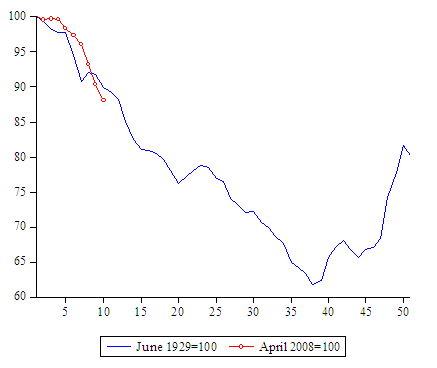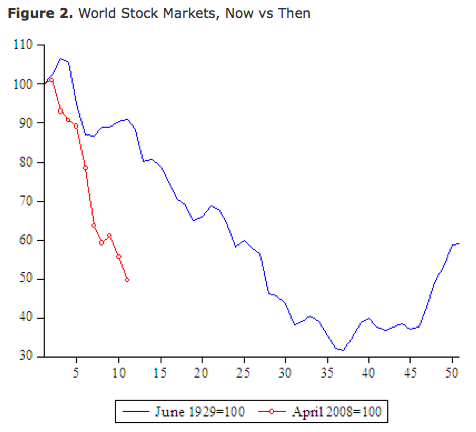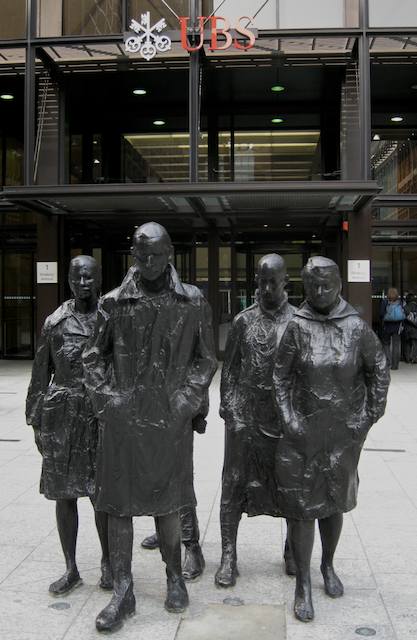Amazing footage showing what appears to be an outrageous, aggressive unprovoked attack by a police officer.
Ian Tomlinson, the man who died at last week’s G20 protests in London, was attacked from behind and thrown to the ground by a baton-wielding police officer in riot gear, dramatic footage obtained by the Guardian shows.
Even if it cannot be shown that Mr Tomlinson’s death was directly caused by this attack, it looks like GBH to me. It’ll be interesting to see how the Met/City of London Police try to avoid responsibility.
Interesting case also of citizen journalism?
LATER: Interesting blog post linking the Tomlinson case to that of Blair Peach who was killed just 30 years allegedly by a blow from one of the Yard’s ‘Special Patrol Group’.
In Peach’s day there were no hand-sized video cameras available to record the action. Today, media is much more immediate and many people carry camera phones capable of recording video. This means that any untoward action by the police during the G20 action was very likely to arrive in the public domain, just as the Guardian’s video showing the assault on Tomlinson has.
This begs the question of why the police were acting in such an aggressive and violent manner when they knew full well their actions were likely to be captured on film and beamed worldwide? The answer, to me, is simple: The police have too many bad apples in their barrels, people who are not in the job to protect people but actually prefer to bully them. They especially like to bully people who they see as ‘not one of them’. In other words, people who don’t share their often extreme views. This is a dangerous situation. It is especially so because the police force has been given many extra powers under the guise of ‘the war on terror’. Now, we are seeing them using these powers to terrorise.
I’m sorry to be a cynic but I do not believe that the policeman who was involved in Ian Tomlinson’s death will ever be brought to justice. Nor will the police aggression be reigned in as there seems to be absolutely zero political will in the leading parliamentary parties to bring their hunting dogs to heel.
Footnote: The Coroner’s verdict on Peach was “death by misadventure”.



